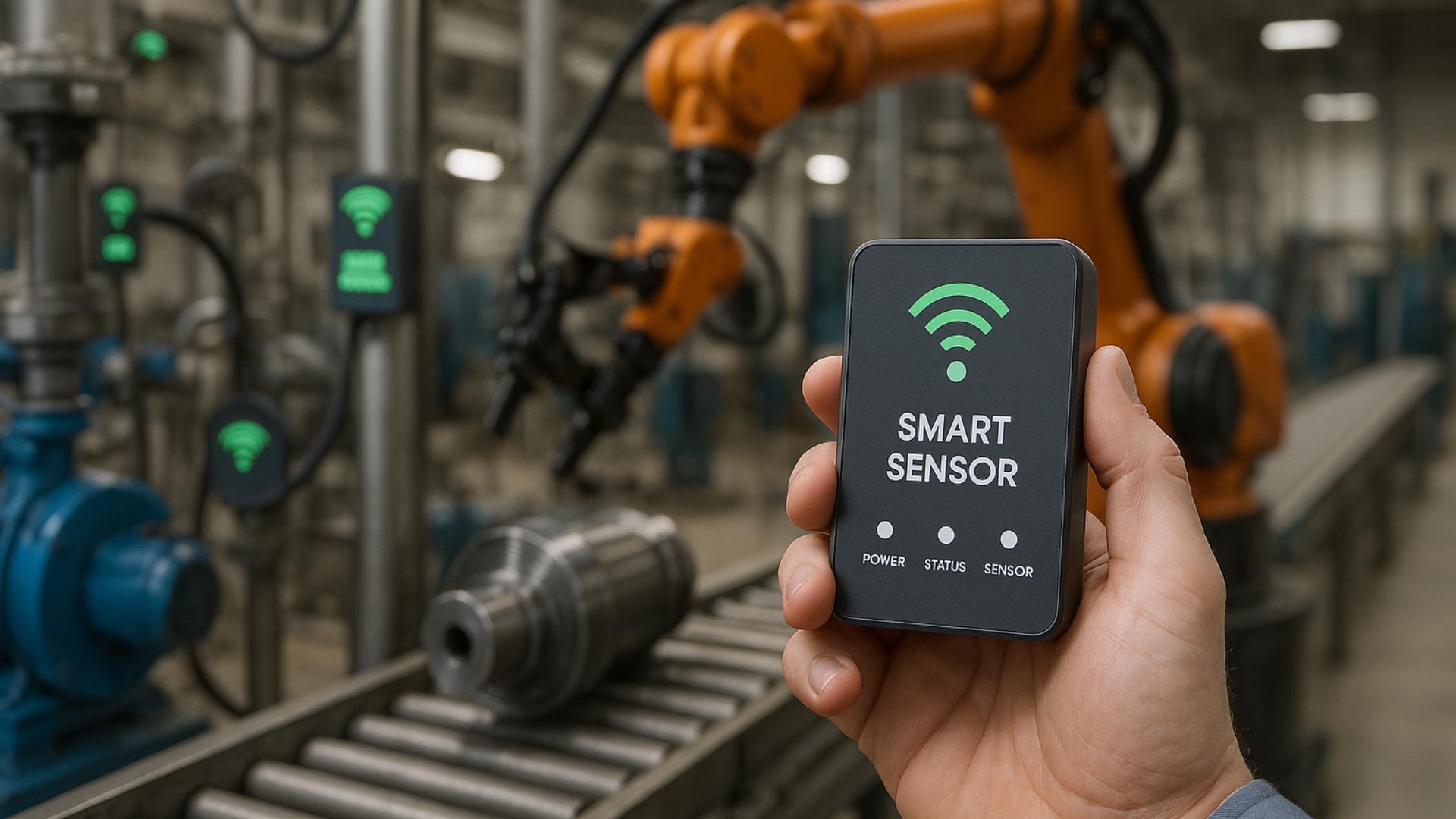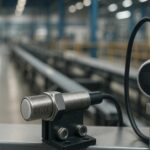In 2025, we stand on the brink of an industrial transformation driven by innovation and automation. By embedding sensors into every facet of manufacturing, industries are harnessing the power of smart technology to enhance efficiency, boost production, and ensure safety. These aren’t just buzzwords but the building blocks of a modern era where real-time data fuels rapid advancements. Let’s delve into how these tiny tech marvels are redefining the way industrial sectors operate today.
The Magic Behind Smart Sensors
Smart sensors are the unsung heroes of the digital industry. They are the eyes and ears of modern manufacturing, tirelessly collecting data to optimize processes and enhance safety. With the burgeoning Internet of Things (IoT), these sensors weave a tapestry of communication within industrial ecosystems, seamlessly exchanging information to improve efficiency and accuracy.
Unlike traditional sensors, smart sensors go beyond mere data collection. They possess the capability to process, analyze, and even make real-time decisions autonomously. This fosters a level of automation previously unattainable, where machines communicate without human intervention, delivering insights that drive production.
Consider a manufacturing plant employing smart sensors. These devices continuously monitor equipment health, ensuring optimal performance while predicting potential failures. By doing so, they reduce downtime through proactive maintenance, saving both time and resources. The implications are far-reaching, enabling a more resilient, adaptive, and ultimately more profitable industrial environment.
Enhancing Safety and Efficiency with Smart Sensors
In an age where safety is paramount, smart sensors provide a layer of assurance previously unimaginable. Industrial environments, often fraught with hazards, benefit immensely from these vigilant guardians. By continuously monitoring environmental conditions, smart sensors alert personnel of potential risks, ensuring that safety protocols are adhered to diligently.
Beyond safeguarding human lives, these sensors contribute significantly to energy conservation and resource management. Within industrial settings, where energy consumption can be exorbitant, smart sensors optimize energy usage by identifying inefficiencies and recommending corrective actions. This not only reduces operational costs but also promotes an eco-friendly approach to production.
By enabling round-the-clock monitoring, smart sensors foster a culture of discipline and precision. They ensure that every aspect of the manufacturing process is scrutinized and fine-tuned to maximize output while minimizing waste. The result is a harmonious blend of technology and efficiency that propels industries towards a sustainable future. {image_content}
The Future of Predictive Maintenance and Real-Time Monitoring
Predictive maintenance is emerging as a cornerstone of the smart industry, drastically altering how equipment upkeep is approached. Traditionally, maintenance was reactive, often leading to unforeseen downtime and costly repairs. However, with smart sensors, maintenance becomes a calculated, proactive measure.
Harnessing the power of real-time data, sensors monitor machine parameters like temperature, vibration, and operational load. By identifying anomalies early, they predict potential equipment failures long before they occur, allowing for timely interventions. This not only extends the lifespan of machines but also optimizes production schedules, ensuring seamless operations.
Moreover, real-time monitoring fosters transparency across the production line. Managers receive instant updates on every aspect of the manufacturing process, from raw material consumption to end-product quality. This empowers decision-makers to implement strategies that enhance efficiency and adapt to dynamic market demands.
The marriage of technology and foresight through smart sensors is revolutionizing the industry’s approach to maintenance, paving the way for a more robust, resilient, and economically feasible future.
As we navigate the complexities of the modern industrial landscape, the role of smart sensors cannot be overstated. They are the silent revolutionaries driving change, bridging the gap between traditional manufacturing and a future defined by automation and efficiency. By embracing this technology, industries are not only ensuring safety and efficiency but are also positioning themselves as pioneers in a rapidly evolving world.
The advent of smart sensors marks a new era where data becomes the lifeblood of industrial progress. It’s not merely about adopting new systems but about engendering a culture of innovation and sustainability. As we move forward, let us embrace the possibilities these sensors offer, forging a path towards a smarter, safer, and more productive world.
FAQ
What are smart sensors and how do they differ from traditional sensors?
Smart sensors are advanced devices that combine sensing capabilities with data processing, communication, and decision-making functions. Unlike traditional sensors that merely detect and transmit information, smart sensors can analyze data, communicate with other devices, and make autonomous decisions based on predefined algorithms.
How do smart sensors improve efficiency in industrial processes?
Smart sensors enhance efficiency by providing real-time data that allows for more accurate monitoring and control of industrial processes. This leads to optimized resource usage, reduced downtime through predictive maintenance, and improved quality control by allowing for immediate adjustments.
What role do smart sensors play in predictive maintenance?
In predictive maintenance, smart sensors continuously monitor equipment conditions and detect anomalies or wear and tear. By analyzing this data, they predict potential failures before they occur, allowing maintenance to be scheduled proactively, reducing unexpected breakdowns and extending equipment lifespan.
Can smart sensors be integrated with existing industrial systems?
Yes, smart sensors can be integrated into existing industrial systems. They are designed to be versatile and compatible with various communication protocols, enabling seamless integration with current infrastructure to enhance data collection and process monitoring without significant overhauls.
What are some common applications of smart sensors in industry?
Smart sensors are used in numerous industrial applications, including monitoring environmental conditions in manufacturing plants, tracking asset locations in logistics, ensuring safety in hazardous environments, and optimizing energy consumption in smart grids.



